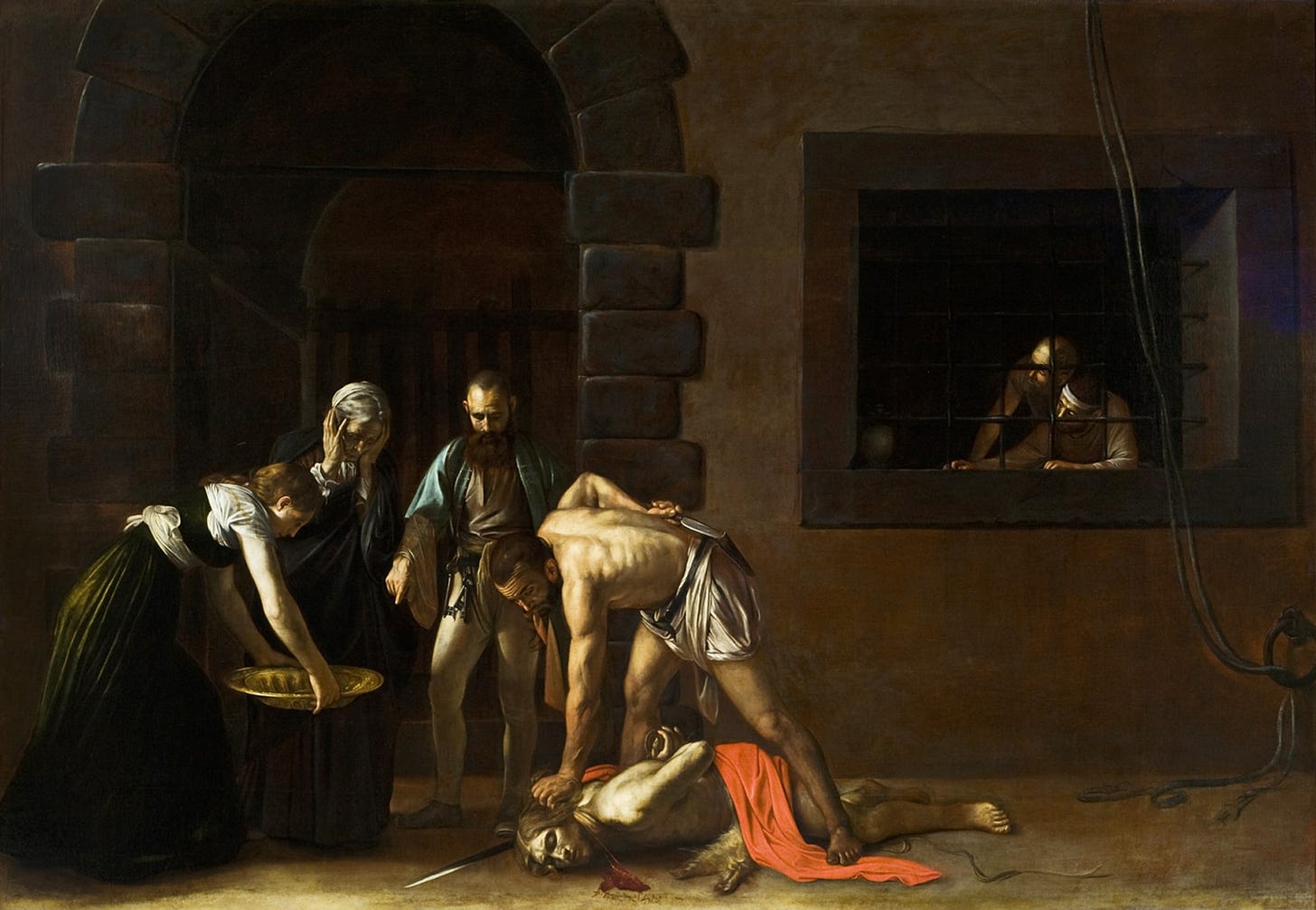“The Decapitation of John the Baptist” by Caravaggio
There is a figure whose importance is easy to overlook in the Biblical story, and in the Christmas story. That is John the Baptist. He came, in his own words, as “the voice of one crying out in the wilderness, ‘Make straight the way of the Lord’, as the prophet Isaiah said.” But he also came as Elijah.
Our passage today is the last two verses of the Old Testament, in which God promises to send Elijah to his people. This can be confusing to us, and it was to people of Jesus’ day as well. They seemed highly primed and on the lookout for Elijah. Religious leaders as well as common people speculated that both John and Jesus were Elijah returned to the earth. Remember that he was taken up in a whirlwind to heaven and did not die like other humans (2 Kings 2:11). It was likely this as well as our passage that led to an expectation of his return.
What does it mean for Elijah to come again? Why did God promise to send him? Is it a promise of a literal return? Luke 1:16-17 provides the answer. Here the angel who has appeared to Zechariah in the temple is telling him what his special son will be. These are the angel’s words:
“And he will turn many of the children of Israel to the Lord their God, and he will go before him in the spirit and power of Elijah, to turn the hearts of the fathers to their children, and the disobedient to the wisdom of the just, to make ready for the Lord a people prepared.”
I do not believe John the Baptist was literally Elijah. He was his own unique human being, one who would be the greatest of the prophets. The name Elijah means ‘Yahweh is my God’. Some, such as Victorinus of Petovium, believed that Elijah would literally come again at the end of the world for judgment, connecting Revelation 7:2 with our passage today from Malachi. Now, Malachi does mention ‘the great and dreadful day of the Lord’, which sounds very eschatological. But I don’t believe it refers to the end of our world. I think this passage from Luke clearly states that John the Baptist is the fulfilment of our passage in Malachi. There doesn’t seem much prophecy left over to be fulfilled yet again by a third coming of Elijah. He “has already come, and they did not recognize him, but did to him whatever they pleased.” These are the words of Jesus in Matthew 17:12.
I think this great and terrible day of the Lord is in fact the day of judgment that God held to judge his covenant people of the nation of Israel, removing them as a dead branch on a tree for rejecting their true Messiah. In a sense, I believe this happened when Jesus died and the Temple curtain was torn in two. But the final and visible end to the Old Covenant age, so to speak, came in 70 AD when the temple in Jerusalem was destroyed. God was saying, in both of these events, that the old way of doing things was over. Jesus was the true Temple, and those who worshiped God must worship from then on in spirit and in truth.
And John the Baptist was the beginning of the end. He was the final Hebrew prophet, and the greatest of them all (Matthew 11:11).
Behold, I will send you Elijah the prophet before the coming of the great and dreadful day of the Lord:
And he shall turn the heart of the fathers to the children, and the heart of the children to their fathers, lest I come and smite the earth with a curse.
Malachi 4:5-6
Christmas hymn: “Angels We Have Heard On High”
Christmas fun song: “Silver Bells”
Prayer: O Father, we are humbled to know that the one who baptized Jesus our Lord was a man just like us. He was Your great and faithful servant John the Baptist, a mighty example to us all of humble service. He came in the joy of a best man, filled to the brim with gladness for the Groom, who was coming to his bride.
Let us also learn to empty ourselves of desires for our own gratification, and instead seek to draw up joy for the other, joy for Your name to be made great, jealousy for Your glory, and forgetfulness of our own advantage. Work this into us through Your Spirit. We thank you for doing this, because we believe it is Your will, and because we ask it in the name of Jesus Your Son. Amen.


